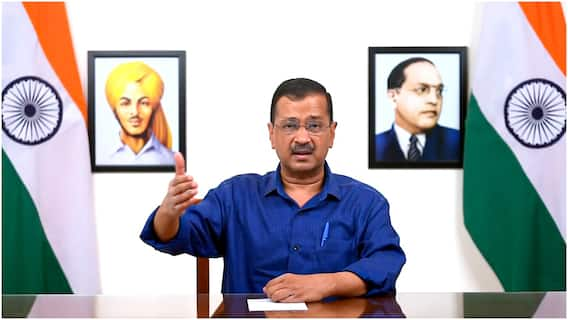
Why are the Pashtun Angry?

New Delhi [India] Feb 6 (ANI): Rao Anwar Ahmed Khan's police force in Karachi shot dead a 27-year old Mehsud Naseemullah (aka Naqeebullah), originally from South Waziristan, during an encounter. Rao Anwar had organised similar encounters in the past and in the last seven years there had been 200 clashes in the Malir District of Karachi in which 450 people had been killed.
Details of these killings are scanty or simply do not exist except that a large number of the dead were Pashtun. For Rao Anwar, the killing of Mehsud along with three others in Shah Latif Town was a routine affair where the dead would be shown as terrorists enabling to drill additional notches on the butt of his gun. These killings were presumably trophies ensuring further rewards.
As it turned out, Mehsud was no TTP or any other terrorist. Although he had come from the lawless borderlands of FATA, he had left home with his family during the Pakistan military operation in Waziristan and made their way to Karachi, a city which has the largest number of Pashtun living outside their province.
The family did not settle in Tank or Dera Ismail Khan as many others had done.
He was active on the social media and wanted to be in the world of fashion. But he was kidnapped on January 3, killed in an 'encounter' on January 12 and his family was informed on January 16. The Pashtuns' of Sohrab Goth and other parts were infuriated with the news and his friends were out on the streets protesting. The protesters marched from the Sohrab Goth graveyard to Peshawar.
Several people from Dera Ismail Khan, Multan, Tank and even Waziristan joined them. Eventually, Pashtuns in thousands held for sit-in demonstrations in Islamabad.
Addressing the large gathering of protestors outside the Islamabad Press Club was Hamid Mir, one of Pakistan's foremost TV journalists.
Mir has had several brush-in with the Rawalpindi crowd in the past but this did not prevent him from delivering a fiery speech, describing the demonstrations as a fight against the violators of the Constitution and the law of the land. He also added that unless these demands were met, demonstrations would spread to other parts of the country, beginning with the demand for seeking justice in the clearly dubious killing of Mehsud, the demands have now grown to include other grievances of the Pashtun.
The crowd also sought punishment for Anwar Ahmed and demanded that extra-judicial killings be stopped, that land mines planted in FATA which resulted in innumerable civilian casualties, including women and children, be removed, end enforced disappearances all over Pakistan, especially in Balochistan, Sindh and Pakhtunkhwa and innocent Pashtun be freed.
They have also objected to racial profiling of Pashtun, asserting that they have been victims of inhuman torture and that all this amounted to genocide.
Despite the venue of the protests, media coverage in Pakistan has been scanty unlike the coverage of the Tehreek-e- Labbaik Ya Rasool Allah sit-in last November where the government seemed to have given in to the demands and the media had covered the events extensively, presumably under instructions.
So far, the Pashtun Long March and protest, for which thousands of people of all ages had participated is the first of its kind, has been orderly and peaceful. Many of the marchers have stepped out of their regions in FATA for the first time and have come to tell their story.
Their story is that of deprivation for decades living in squalid camps and then returning home where they faced land mines and IEDs.
With endless conflict in Afghanistan since the 1980's, generations of Afghans have died away from home fighting a war that was thrust upon them. In the early days of the Afghan jihad, it was a justified war against the Soviet invasion but their departure did not bring peace to Afghanistan.
Pakistani desire to control Afghan destiny then led to interminable conflict in Afghanistan as it sought strategic depth in Afghanistan for its forces against India. If the Afghan Mujahedeen fighting the Soviets had religious overtones, Pakistan tried to control Afghanistan through an ethno-religious force of Pashtun - the Taliban - fighting for control of Afghanistan against the government in Kabul.
The US military involvement in Afghanistan since October 2001, without controlling Pakistan's behaviour has been a horrible, expensive and an unsuccessful adventure. In the process, Afghanistan has suffered, and so have the Pashtun, on both sides of the Durand Line.
For decades now, they have faced violence and loss at the hands of the Taliban, the Pakistan Army and the US military drones.
It is true that the Taliban was essentially a Pashtun force but not all Pashtun were members of the Taliban or sympathised with them. Pakistan hoped that a religious force would submerge ethnic aspirations on both sides of the Durand Line.
With time, the Pakistani ploy of making use of a religious identity of the Taliban and their extremist ideology to keep control over Afghanistan has backfired.
By continuing to refuse to act against the Afghan Taliban with the excuse that this would bring the war back to Pakistan that is precisely what has begun to happen.
The attack on the Army Public School in Peshawar in 2016 and now the killing of 11 soldiers, including an officer, and injuring 13 in Swat earlier this month in a suicide attack by the TTP is an example of the war that never really ended.
Besides, it must be well-known to the Pakistan authorities that the Taliban website operates from Karachi, the safe havens and military hardware given to the Taliban with the notorious Haqqani Network as their favourites are well-known and Pakistani policy towards the US has remained duplicitous with very little congruence of interests.
Peace in the Pashtun region of Pakistan and Afghanistan is dependent on Pakistan's policies in Afghanistan that in turn impinge on its domestic behaviour.
An estimated half million Pashtun refugees had moved out of FATA and Khyber Pakhtunkhwa to safer havens in other parts of Pakistan. Unavoidably, refugees add to demographic and social pressures as well as law and order problems.
They become centres of extremism, anger, crime and extortion. It gets more complicated when forces like the Taliban use refugees as camouflage for their own activities. For years, Pakistan followed the principle of conducting two-front jihad in Afghanistan and Kashmir by splitting the jihadis to keep control of the jihad.
The result is that today we have a situation where competitive jihad has been going on with different groups operating together, or independently or in case of sectarian groups, operating with their own agenda.
The picture in the Pashtun regions is complicated with no-one truly in control. The normally India specific groups have also been operating as support for the Taliban but government action under pressure against Lashkar-e- Tayyaba/Jamat ut Dawa outfits and its schools and social welfare institutions, mainly in the Punjab, is not likely to go down well with this Jihadis.
It is often forgotten that latent suspicions about and animosity towards Pakistan, mainly its Punjabi establishment and army, have existed among the Pashtun from the beginning.
Today, the Pashtun complain that their progressive nationalist movement was crushed by eliminating thousands of their cadres and their culture systematically broken.
The Afghan and Pakistan position on the issue of Pashtuns is linked to Amir Abdul Rehman's surprising acceptance of Mortimer Durand's proposal to demarcate the boundary known as the Durand Line in November 1893.
It was not just a demarcation of a line that Durand sought; but territory from Peshawar to the Indus and from Chitral to northern Balochistan up to Quetta that became part of British India.
Before that date, Afghanistan and British India met on the banks of the Indus. Years later Khan Abdul Ghaffar Khan would speak hopefully of a Pakhtoonistan uniting all the Pashtuns.
His son, Khan Abdul Wali Khan later in 1975 described his identity as that of a six thousand- year-old Pashtun, a thousand-year- old Muslim and a 27-year- old Pakistani. This catches the essential cultural and ethnic unity of the Pashtun despite their frequent quarrels among themselves.
However, Pakistan would want them to be divided and the Durand Line accepted by the Afghans as the boundary.
Meanwhile, Pashtun leaders have raised slogans of azadi and threatened to bring Karachi to a standstill if Rao Anwar Ahmed Khan is not arrested within a week the government in Islamabad agonises over the fate of Kashmiris with the usual promises and threats.
Surely, the government will try to break the protest one way or another. The favoured option could be to let the religious militia intervene to give the protests an Islamic hue, discredit the movement as a non-event, anti-national and/or anti-Islamic. (ANI)
This story has not been edited. It has been published as provided by ANI
Top Headline
Trending News

and tablets



























